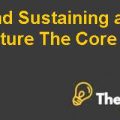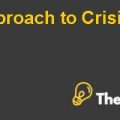Organizational Behavior Project Case Study Solution
Introduction
The travel segment has developed as a crucial component of any country's economy, experiencing notable growth in recent years. This study places a spotlight on the pivotal role that enhancing the quality of human resources plays in ensuring the success of organizations within the tourism industry. Even though only a limited percentage of employees in this sector possess certifications, there has been a remarkable improvement in overall performance (Cholik et al., 2017). The success of the tourism industry in any country can be attributed to various factors, with the quality of human resources standing out as a key determinant.
The term "human resources" in this context refers to the skills, knowledge, and capabilities of the individuals employed within the tourism sector, ranging from tour guides and hotel staff to those involved in travel agencies (Jonathan, 2016). The study acknowledges that, while only a small percentage of employees may hold certifications, the industry has witnessed significant advancements. This implies that factors beyond formal certifications contribute to the success of organizations within the tourism sector. It suggests that practical skills, on-the-job experience, and a commitment to customer satisfaction play crucial roles in the overall performance of individuals working in the industry (Antara et al., 2017).
The positive performance and growth of the tourism sector have translated into substantial contributions into foreign exchange earnings of any country. This indicates that the country has been successful in attracting a growing number of international visitors, leading to increased revenue from tourism-related activities (Jaelani, 2017). The study underscores the idea that, despite the relatively low number of certified employees, the industry's overall success is driven by a combination of factors, including the innate hospitality of the workforce, cultural awareness, and a dedication to providing memorable experiences for tourists (Timothy et al., 1999).
Literature Review
In the territory of the tourism industry, this research explores the complicated dynamics among transformational leadership, political skill, organizational culture, and employee performance (Hughes, 2016). The primary objective is to untie the impact of TL and PS on EP, placing a particular emphasis on the mediating role of OC within these relationships.
Employee Performance (EP)
Employee performance (EP) begins as a critical and complex feature that considerably affects organizational success within the tourism industry (Waheed, 2011). EP includes the quality and quantity of work accomplished by employees, making it a fundamental contributor to the achievement of organizational goals. The study investigated numerous dimensions of employee performance, recognizing that it prolongs beyond mere task conclusion to involve a range of behaviors and consequences (Anitha, 2014).
Transformational Leadership (TL)
TL is considered to encourage motivation, ideal impact, personalized attention, and academic encouragement (Bass et al., 2006). TL is identified as a strong predictor of EP, influencing members to view work positively and think creatively. Transformational leadership, a leadership style known for its emphasis on inspiring and motivating followers, is a focal point of investigation (Bass, 1999). In the context of the tourism sector, where the nature of interactions with clients and the quality of service are paramount, understanding how TL impacts employee performance becomes crucial. The research seeks to illuminate whether transformational leaders in tourism companies contribute significantly to enhanced employee performance (Greimel, 2023).
Leader’s Political Skill (PS)
PS is distinct as a leader's capability to appreciate others and influence them to achieve personal or organizational objectives. The study highlights the positive correlation between PS and task performance among employees, emphasizing the importance of PS in driving high EP. PS distinct as the capability to efficiently recognize and navigate organizational politics, is another critical variable under scrutiny (Zaman, 2019). Given the complex and dynamic nature of the tourism industry, where stakeholders often have diverse interests, examining the impact of political skill on employee performance provides insights into the adaptive capacities of individuals (Hartley, 2019).
Organizational Culture (OC)
Within the tourism industry, organizational culture (OC) appears as an essential predictor with significant implications for improving employee performance (EP) (Paais, 2019). The study underlines the fundamental part of OC in determining a work environment that not only fosters individual growth but also cultivates collective learning and resilience in the face of challenges (Topi et al., 2020).
Organizational culture, as a dynamic set of collective standards, beliefs, and norms within a company, is identified as a crucial factor influencing employee behavior and performance (Azeem et al., 2021). Within the tourism sector, where the quality of customer interactions and service delivery is paramount, the establishment of a positive and enduring OC becomes particularly relevant. This research recognizes the profound impact of a positive OC in motivating employees to learn collectively and navigate challenges effectively (Soomro et al., 2019)..........
Organizational Behavior Project Case Study Solution
This is just a sample partial case solution. Please place the order on the website to order your own originally done case solution.













